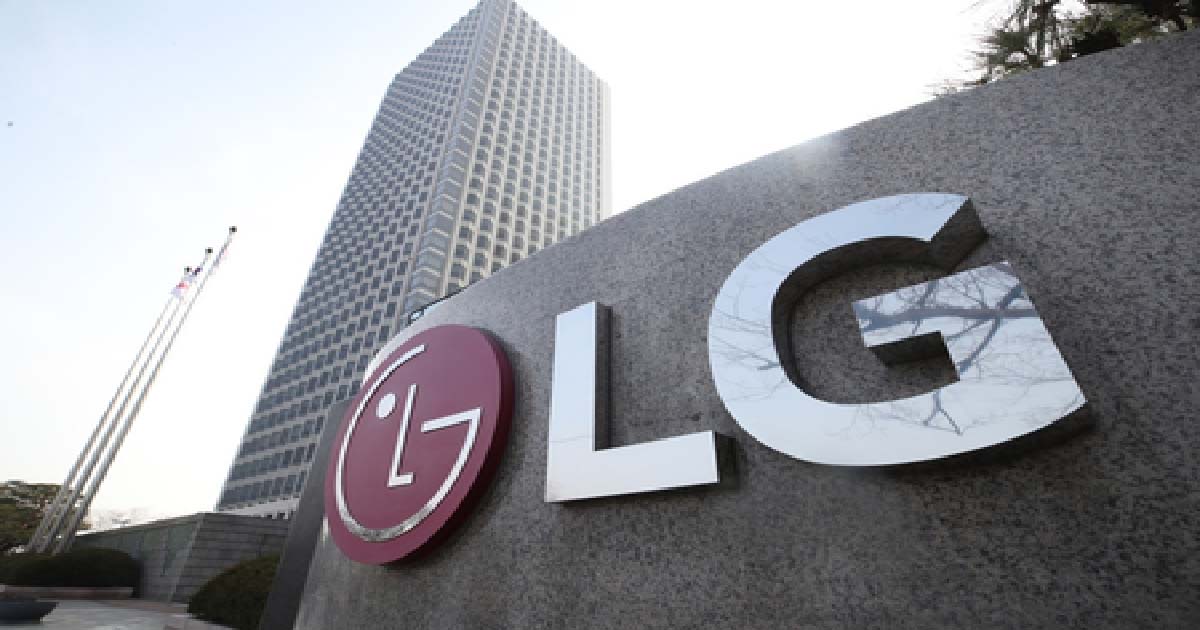Business
Centre-states may discuss early inclusion of natural gas into GST fold

With GST revenue collections making a rebound post the disruptions caused by the second wave of Covid pandemic, the Centre is likely to initiate dialogue with states for inclusion of petroleum products under the new indirect tax fold.
Sources privy to the development said that based on the Petroleum Ministry’s suggestion, the Centre may take up with GST Council the issue of bringing natural gas under the Goods and Services Tax (GST) regime to begin with before the entire oil and gas sector is brought under it.
The 45th GST Council meeting is scheduled on September 17, 2021 at Lucknow. Though the council members will discuss several pending issues such as states compensation, revision of GST rates on Covid essentials, inverted duty structure, the Centre is also likely to take up the case for early inclusion of gas into the new taxation fold.
With revenue position remaining strained due to Covid-19 outbreak, states have been reluctant to consider bringing high revenue generating petroleum products under GST fold. But with GST collections improving substantially this year remaining above the Rs 1 lakh crore psychological-mark in most months of FY22, the Centre feels it is the right time to push for tax reforms in the oil and gas sector as well with the inclusion of gas helping in plan to develop a gas-based economy in the country.
Inclusion of gas would not pose a challenge for the GST Council as it is largely an industrial product where a switchover to the new taxation would not be difficult. The revenue implication for the states is also low in the case of this switchover.
“States are in a fairly better position now with GST revenue hitting over Rs 1 lakh crore-mark for the past few months and Centre has also improved their liquidity position through additional borrowing schemes. This should make phased inclusion of petroleum products under GST easier for the council,” said an official source in the oil ministry.
GST levy on natural gas would help state-run oil companies such as ONGC, IOCL, BPCL and HPCL to save tax burden to the tune of Rs 25,000 crore as they would get credit on taxes paid for inputs and services. Tax credits are not transferable between the two different taxation systems.
The Steering Committee for Advancing Local Value-Add and Exports (SCALE) chaired by Mahindra & Mahindra MD & CEO Pawan Goenka in its report to the commerce ministry has also batted for provision of input tax credit of natural gas to make its prices more competitive. This could happen once it is included in GST.
Sources said Council could consider a three-layered GST structure for gas where residential piped natural gas (PNG) is taxed at a lower rate of 5 per cent, commercial piped natural gas could be taxed at a median rate of 18 per cent, and car fuel CNG could be taxed at a maximum rate of 28 per cent. However, such a proposal has not yet been drafted and it could be put on table after consensus is arrived at inclusion of gas under GST.
Gas sales, including CNG and piped gas supplies, attract VAT ranging from 5-12 per cent.
As part of its efforts to build consensus with the states on GST launch, the government had decided to exclude five petroleum products — crude oil, petrol, diesel, ATF and natural gas — from the list of items placed under GST, but included products such as cooking gas, kerosene and naphtha in the new regime.
Business
Delhi HC stays order requiring second review of RBI Ombudsman complaints

New Delhi, Jan 8: The Delhi High Court on Thursday stayed a single-judge direction that required the Reserve Bank of India (RBI) to institute a second level of human review for consumer complaints dismissed by its banking ombudsman.
A division bench of Chief Justice D.K. Upadhyaya and Justice Tejas Karia passed the interim order on an appeal filed by the RBI against a ruling delivered by Justice Prathiba M. Singh, which required such reviews to be conducted by legally trained professionals, including retired judicial officers or lawyers with a minimum of ten years’ experience.
While staying the impugned directions, the CJ Upadhyaya-led Bench observed that, prima facie, it found force in the submissions advanced on behalf of the RBI.
“Accordingly, we provide that the directions contained in paragraph 47(5) and 48 of the impugned judgment by the learned single judge dated November 27, 2025, shall remain stayed,” it ordered.
The bench also stayed the single-judge’s direction requiring the RBI Deputy Governor to submit a compliance affidavit by January 15, 2026. The matter has now been scheduled for further hearing on March 17.
Appearing for the RBI, Solicitor General of India Tushar Mehta submitted that the single judge had travelled beyond the permissible scope of judicial review under Article 226 of the Constitution.
The Centre’s second-highest law officer submitted that the Reserve Bank-Integrated Ombudsman Scheme, 2021, is a statutory scheme framed under Section 35A of the Banking Regulation Act and Section 18 of the Payment and Settlement Systems Act, and can be altered or modified only by authorities empowered under those enactments.
In her November 27, 2025, ruling, Justice Prathiba M. Singh had expressed concern over complaints being rejected through “system-generated responses” and held that the Ombudsman Scheme must be “an effective Scheme and not a mere toothless division of the RBI”.
The judgment was delivered in a writ petition filed by advocate Sarwar Raza, who had approached the Delhi High Court alleging harassment and wrongful rejection of his complaints by the RBI Ombudsman following a disputed credit card transaction of Rs 76,777.
The single-judge Bench had directed the RBI to ensure that customer complaints are not rejected merely through a mechanised process and that complainants should be given an opportunity to correct minor errors.
It had further ordered that whenever complaints are finally rejected, they must undergo a second level of human supervision by legally trained personnel, observing: “If the complaint redressal mechanism adopted by the Ombudsman is made more effective and efficient, litigation in courts and consumer forum/s can be reduced considerably.”
Business
Sensex, Nifty end lower as India-US trade tension spook investors

Mumbai, Jan 8: Indian equity markets witnessed their sharpest fall in a month on Thursday as benchmark indices extended losses for the fourth straight session, weighed down by rising concerns over India–US trade tensions.
Investor sentiment turned cautious after reports suggested that the administration of US President Donald Trump could consider imposing steep tariffs of up to 500 per cent on Indian goods.
The possibility of such harsh trade measures triggered widespread selling across sectors, leading to broad-based risk aversion in the market.
By the end of the session, the Sensex closed at 84,180.96, slipping 780.18 points or 0.92 per cent.
The Nifty also ended lower at 25,876.85, down 263.9 points or 1.01 per cent.
“A sustained close below 25,900 increases the probability of further downside toward the 25,800–25,700 zone, while a recovery above 26,000 is essential to stabilise near-term sentiment,” an analyst said.
“Despite the current correction, the broader weekly and monthly trend structure remains positive, although short-term corrective pressure may persist if key supports fail to hold,” as per the expert.
On Sensex 30-packs, TCS, TechM, L&T, Reliance Industries and Tata Steel were among the top losers.
On the other hand, Eternal, ICICI Bank, Bajaj Finance, and BEL were the only gainers.
The selling pressure was even more pronounced in the broader market. Mid- and small-cap stocks saw sharp declines, with the Nifty Midcap 100 and Nifty Smallcap 100 indices falling nearly 2 per cent each.
Sector-wise, losses were widespread, with all indices ending in the red. Metal stocks bore the brunt of the sell-off as the Nifty Metal index dropped over 3 per cent.
Oil and gas stocks also remained under pressure, with the Nifty Oil and Gas index falling around 2.8 per cent.
PSU banking and IT stocks were among the other major laggards, declining about 2 per cent each.
Analysts said that the market mood remained cautious as investors grappled with global trade uncertainties and the potential impact of rising tariffs on India’s export-driven sectors.
Business
LG Electronics India shares hit record low after lock-in expiry

Mumbai, Jan 8: LG Electronics India shares came under selling pressure on Wednesday after the expiry of the company’s three-month lock-in period, pushing the stock to an all-time low on the BSE.
The share price fell as much as 4.4 per cent to Rs 1,392.8 during early trade. At 1:30 pm, the stock was still down 2.51 per cent or Rs 36.50 at Rs 1,419.90.
The decline was largely linked to the end of the lock-in period, which restricts certain shareholders from selling their shares for a fixed time after listing.
With the lock-in ending, around 15 million shares — about 2 per cent of LG Electronics India’s total equity — became eligible for trading, according to Nuvama Institutional Equities.
The company currently has a market capitalisation of Rs 2,559.97 crore. The stock is trading nearly 17 per cent below its listing price of Rs 1,715 on the BSE, though it remains about 25 per cent higher than its issue price of Rs 1,140 per share.
LG Electronics had made a strong debut on Dalal Street on October 14, 2025.
On the financial front, LG Electronics India reported a weak performance in the September quarter (Q2FY26).
The company’s net profit fell 27.3 per cent year-on-year (YoY) to Rs 389.43 crore, compared with Rs 535.7 crore in the same quarter last financial year.
Net sales grew marginally by 0.9 per cent to Rs 6,170.4 crore, according to its earlier exchange filing.
Emkay Global Financial Services said the company’s quarterly results were weak, in line with industry peers.
The brokerage attributed the performance to GST-led demand postponement by dealers and consumers, weak consumer sentiment, and lower business-to-business revenue in the home electronics segment due to tariff-related issues.
However, Emkay noted that LG Electronics managed to gain market share in both home appliances and electronics, strengthening its leadership position in these categories despite the challenging environment.
-

 Crime3 years ago
Crime3 years agoClass 10 student jumps to death in Jaipur
-

 Maharashtra1 year ago
Maharashtra1 year agoMumbai Local Train Update: Central Railway’s New Timetable Comes Into Effect; Check Full List Of Revised Timings & Stations
-

 Maharashtra1 year ago
Maharashtra1 year agoMumbai To Go Toll-Free Tonight! Maharashtra Govt Announces Complete Toll Waiver For Light Motor Vehicles At All 5 Entry Points Of City
-

 Maharashtra1 year ago
Maharashtra1 year agoFalse photo of Imtiaz Jaleel’s rally, exposing the fooling conspiracy
-

 National News1 year ago
National News1 year agoMinistry of Railways rolls out Special Drive 4.0 with focus on digitisation, cleanliness, inclusiveness and grievance redressal
-

 Maharashtra1 year ago
Maharashtra1 year agoMaharashtra Elections 2024: Mumbai Metro & BEST Services Extended Till Midnight On Voting Day
-

 National News1 year ago
National News1 year agoJ&K: 4 Jawans Killed, 28 Injured After Bus Carrying BSF Personnel For Poll Duty Falls Into Gorge In Budgam; Terrifying Visuals Surface
-

 Crime1 year ago
Crime1 year agoBaba Siddique Murder: Mumbai Police Unable To Get Lawrence Bishnoi Custody Due To Home Ministry Order, Says Report


















